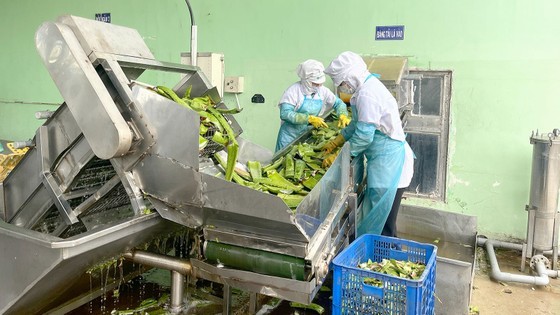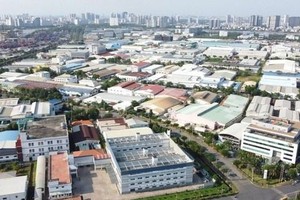 |
GC Food Company makes use of by-products as organic fertilizer and animal feed (Photo: SGGP) |
According to the General Statistics Office, in the first five months of 2023, 88,000 enterprises exited the market, up 22.6 percent over the same period last year. Businesses need the amount of money from the corporate income tax cut to re-invest in production or endure difficulties when they hardly access credit capital with high-interest rates.
Deputy Minister of Finance Nguyen Duc Chi said that expansionary fiscal policies such as tax relaxation , tax reduction, land rent reduction, and various taxes are needed to promote support for the economy. Being the Minister of Finance, he supposed the fiscal policy in recent years to be the fulcrum and pedestal for the performance of other macro tasks.
The fiscal space in a government’s budget that allows it to provide resources for a desired purpose without jeopardizing the sustainability of its financial position or the stability of the economy - can be used as in 2022 when the state budget revenue achieved estimates as expected, although there was a decrease compared to the same period in the previous year, the reduction was not much, he said.
The Ministry of Finance will report to the Government and implement measures to ensure correct and sufficient revenue and achieve the objectives of the fiscal policy.
Professor Hoang Van Cuong, Vice Rector of National Economics University supposed to reduce interest rates in combination with reducing corporate income tax.
According to the Professor, over the past time in the context of the Covid-19 pandemic, Vietnam used fiscal policies such as reducing taxes but the country did not fall into inflation, still reducing the burden on businesses.
The State Bank of Vietnam has lately reduced the operating interest rate three times so as to bring the interest rate down to a low level with the aim to help businesses have financial resources.
The Government has also continued to implement supportive fiscal policies such as extension or postponement of taxes and rents; plus, the government has proposed to the National Assembly to reduce VAT by 2 percent.
He expected the VAT reduction policy will extend more not just until the end of 2023; at the same time, more supportive policies associated with interest rate reduction will be implemented. The government can help exporters that are currently facing difficulties by adjusting the exchange rate policy and reducing corporate income tax for this group.
Many businesses are continuing to lay off workers as orders decline on the back of global inflation weakening consumption in major export markets; therefore, the government should consider social support policies, or policies to relax or postpone the obligation to contribute social insurance to reduce the burden on employees.
According to Mr. Nguyen Ngoc Hoa, Chairman of Ho Chi Minh City Business Association, Currently, many enterprises are producing in moderation. Workers across the country are seeing their working hours cut due to a downturn in export orders. Enterprises are trying to hold out with the hope to receive new orders while looking for new directions. Therefore, the government should not only reduce VAT but also consider reducing other taxes, such as corporate income tax and personal income tax.
The reduction of these taxes should first aim at stimulating domestic demand and public investment. In the current context, public investment is the last resort, because private investment and social investment have been shrinking. Public investment will be a step to promote the recovery process at least for the construction materials manufacturing and trading industries creating many jobs.
In addition, a long-term credit policy is also needed. Interest rates need to continue to decrease because if the lending interest rate is above 10 percent, businesses will certainly not borrow.
According to the Ministry of Finance, corporate income tax accounts for about 14 percent-15 percent of total state budget revenue. In 2020, the total state budget revenue was VND1.5 quadrillion, of which corporate income tax (excluding crude oil) is more than VND241 trillion, accounting for 15.99 percent. The corporate income tax policy has undergone many reforms in recent years.
Specifically, the general corporate income tax rate has been reduced from 25 percent to 22 percent from January 1, 2014. Small and medium-sized enterprises enjoyed the tax rate of 20 percent which was applicable from July 1, 2013. From January 1, 2016, the general corporate income tax rate for all types of businesses has been 20 percent.
























